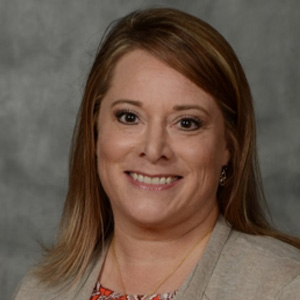
Amy Schmidt

Having grown up in rural Iowa, she appreciates the agricultural production systems that feed people worldwide and chose her career path to support responsible livestock production by helping farmers adopt research-based practices that optimize agronomic productivity and minimize potential environmental and social risks. Keeping up with two active kids, her husband, and their family dog is her other full-time job! She spends a lot of evenings and weekends cheering on her kids at baseball and softball games, about as much time scrubbing dirt and grass stains out of white baseball pants, and not nearly enough time sleeping.

Lindsay Chichester

Lindsay grew up on a cattle and sheep ranch in northern California. She obtained her higher education degrees from West Texas A&M University in Canyon, TX, with a Master of Science in Animal Science, a Master of Arts in Speech Communication, and a PhD in Agricultural Sciences. Lindsay is an Extension Educator where her current programming focuses on agricultural literacy for youth and adults, agricultural health and safety, animal care/welfare, agritourism, small acreages, and beekeeping. In her spare time Lindsay enjoys 4-wheeling, traveling, being a foodie, and trying to keep up with a toddler. Lindsay can be found online as AgWithDrLindsay.
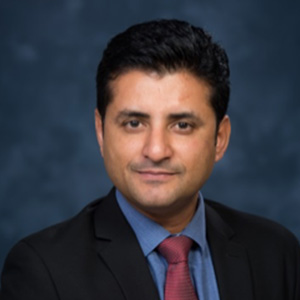
Sid Thakur

Dr. Thakur was the Associate Director at the Comparative Medicine Institute and led the Emerging and Infectious Diseases Research program. He received his Degree in Veterinary Medicine and Master of Veterinary Public Health from India. He earned his Ph.D. in Population Medicine at the College of Veterinary Medicine, NC State. Before joining the faculty at NC State University, Dr. Thakur was an Oakridge Research Fellow at Center for Veterinary Medicine, FDA, Maryland. He espouses the concepts of “One Health” and seeks to understand how antimicrobial resistance develops in “superbugs” that affect animal and human health. He has won numerous awards including the Larry Beuchat Young Researcher Award by the International Association for Food and the Outstanding Global Engagement award by NC State. He is an NC State Chancellor faculty scholar. Dr. Thakur has authored or co-authored 50 peer-reviewed publications and edited two books.

Stephanie Lansing

Dr. Stephanie Lansing earned her Ph.D. and M.S. in Food, Agricultural, and Biological Engineering from the Ohio State University. She leads the Bioenergy and Bioprocessing Technology Lab, which is positioned at the nexus of antimicrobial resistance, water quality, waste treatment, renewable energy, and human health. Her research includes the effect of anaerobic digestion and composting on reducing antimicrobial resistance and pathogens, using microbial electrolysis cells and nanotechnology to increase biogas from digestion processes, nutrient capture technologies, and modeling. She has 20 years of experience assisting communities with One Health, anaerobic digestion, nutrient management, and life cycle assessments. She currently teaches classes in Antimicrobial Resistance and Its Role in One Health; Renewable Energy; Ecological Design; and Data Analysis in the Food, Energy, and Water Nexus.

Jovana Kovacevic

Dr. Kovacevic directs the food safety program at OSU’s Food Innovation Center in Portland, OR focusing on Listeria research, FSMA-related food safety training, education, and outreach activities. She also directs the USDA-funded Western Regional Center to Enhance Food Safety. Her research uses molecular methods and whole genome sequencing to trace, better understand and prevent contamination events in the food chain, with particular focus on Listeria monocytogenes. Her other interests include sanitizer and antimicrobial resistance in the food chain, pathogen stress survival and biofilms, and understanding and prevention of food contamination.

Kari Nixon

Dr. Nixon teaches medical humanities and Victorian literature. Her research focuses on the confluence of microbiology, germ theory, and social norms in the late nineteenth century, and expands into the present day, considering the risk aversions that motivate antibiotic usage and aversion to vaccines. Her co-edited collections, Endemic: Essays in Contagion Theory and Syphilis and Subjectivity were published with Palgrave in 2016 and ’17, respectively. Her first book, Kept From All Contagion: Germ Theory, Disease, and the Dilemma of Human Contact came out in May 2020, and she was recently featured in HuffPo for her article on anti-vaxx culture and motherhood norms.

Divya Jaroni

Dr. Jaroni's expertise lies in pre-harvest food safety of fresh produce and foods of animal origin, as well as post-harvest strategies to control shigatoxigenic E. coli (STEC) and Salmonella in foods and on food-contact surfaces. Her research also focuses on the control of bacterial biofilms at pre-harvest and post-harvest levels. Dr. Jaroni has been working on developing alternative strategies to mitigate antibiotic resistant foodborne pathogens in the food industry for the last ten years. Some of that work includes feed alternatives for beef cattle and poultry; sanitizers and antimicrobials for food processing surfaces; decontaminants for poultry litter; and interventions during beef, poultry and fresh produce processing.

Rohan Tikekar

Dr. Tikekar's research and extension work are focused on developing novel food processing technologies for improved food quality and safety. His lab also works on understanding the development of resistance within pathogenic bacteria towards various environmental stresses, sanitizers, and food processing treatments and determine whether this resistance to food processing treatments can translate to antibiotic resistance and vice versa. His outreach and extension activities focus around training small and medium scale processors in understanding and mitigating food safety risks.

David Lansing

Growing up in Wyoming, and spending many years in rural areas across Central America, Dr. Lansing has witnessed all types of farming styles and livelihoods. Since 2005 his research has studied how conservation policy is formed and implemented, and the effects such policies have on the land use decisions and livelihoods of farmers. He has conducted research in Costa Rica, Honduras, Maryland, New York, and Nebraska. His more recent work is interested in how various land use stakeholders conceive of the environment, how this affects their approach toward sustainable farming practices, and their relationship toward environmental regulations. He is currently undertaking this approach through a multidisciplinary project that studies changing antibiotic practices across dairy and beef cattle industries.

Eduardo Gutierrez-Rodriguez

Dr. Gutierrez-Rodriguez has over 20 years of research, extension, and business experience in food safety focusing on fresh produce and minimally processed food environments. His research centers on understanding the microbial ecology of human pathogens within farm and food processing environments looking at microbial interactions, risk assessment, and remediation practices that can sustain fruit and vegetable production and reduce the transfer of human pathogens into the food supply chain. He has worked with the food industry in Latin America and the U.S. supporting training in compliance with the Food Safety Modernization Act (FSMA) in fresh produce, preventive controls for human food, and in the foreign supplier verification regulations. His involvement in the food industry includes guiding research and development and quality assurance departments in the U.S.and Costa Rica and in the development of benchmarks for process validation on farms, water systems, washing fresh produce, sanitation, and preservation practices. He has also worked with the food and chemical industry in the U.S. assisting registration of antimicrobial products with FDA and EPA and in the development of strategies to reduce the transfer of pathogens and AMR within diversified farming systems and ready to eat foods.
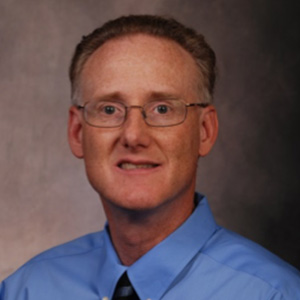
Rick Stowell

Rick is a co-leader of the Livestock & Poultry Environmental Learning Community, which strives to provide access to the nation’s best science-based resources that are responsive to priority and emerging environmental issues associated with animal agriculture.

Emmanuel Okello
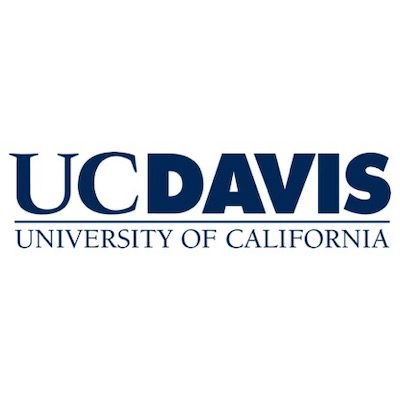
Dr. Okello has over 10-years work and research experience across Africa, Europe, and the United States. The goal of his research and extension program is to promote antimicrobial stewardship in the livestock industry. His research is focused on understanding the distribution and risk of antimicrobial resistance in livestock agriculture, and the development of health management strategies for reduced antimicrobial resistance and improved health and welfare of herds and flocks.

Mara Zelt

Mara Zelt completed her Master's degree at the University of Nebraska, studying manure management strategies and their impact on antibiotic resistance. Mara is now working at the University of Nebraska as a part of Nebraska Extension and the iAMResponsible project to support sustainable agriculture and healthy communities with research-based outreach and educational programming. Mara is an avid podcast listener, reader, and a fierce board game competitor – if you block her bid for longest road, you will be hunted.

Amber Patterson

Amber has a Bachelor of Fine Arts degree and a background in graphic design. Originally from Florida, she has lived in Lincoln, NE for eight years and absolutely loves it! She has worked with the Schmidt Lab at the University of Nebraska for seven years and enjoys finding new and exciting ways to share the incredible work the lab does with the public. When Amber is not working, she is snuggling her Chiweenie while reading a book.
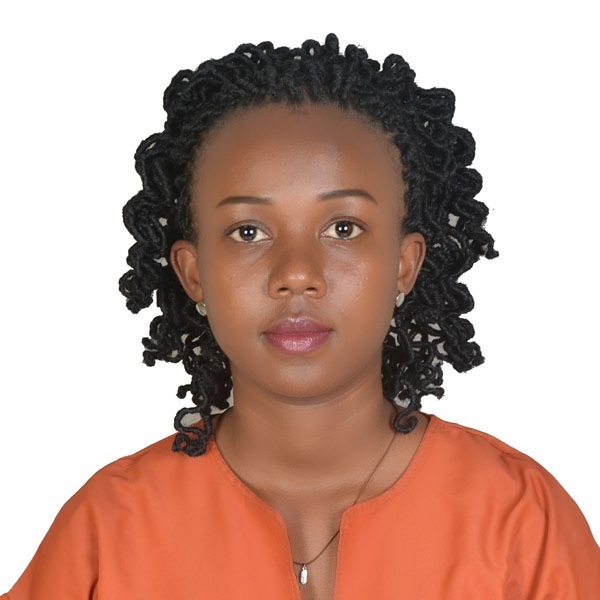
Nancy Sibo

Nancy Sibo holds a Master of Science degree in Global Health Delivery from the University of Global Health Equity. She graduated with a Bachelor of Science in Animal Production from the University of Rwanda. After the completion of her undergraduate studies, Nancy joined Global Health Corps, where she worked as Food Security and Livelihoods Program in charge of designing a strategic roadmap of community nutrition interventions areas aligned to the National Food and Nutrition Policy. Nancy’s area of research has covered a wide range of topics including the use of non-protein nitrogen to cattle that look at achieving food and nutrition security today and poultry farming best practices for sustainable productivity of small-scale farming. Nancy is now a graduate student in Natural Resources, her project will focus on the mitigation of Antimicrobial Resistance in the beef production chain.